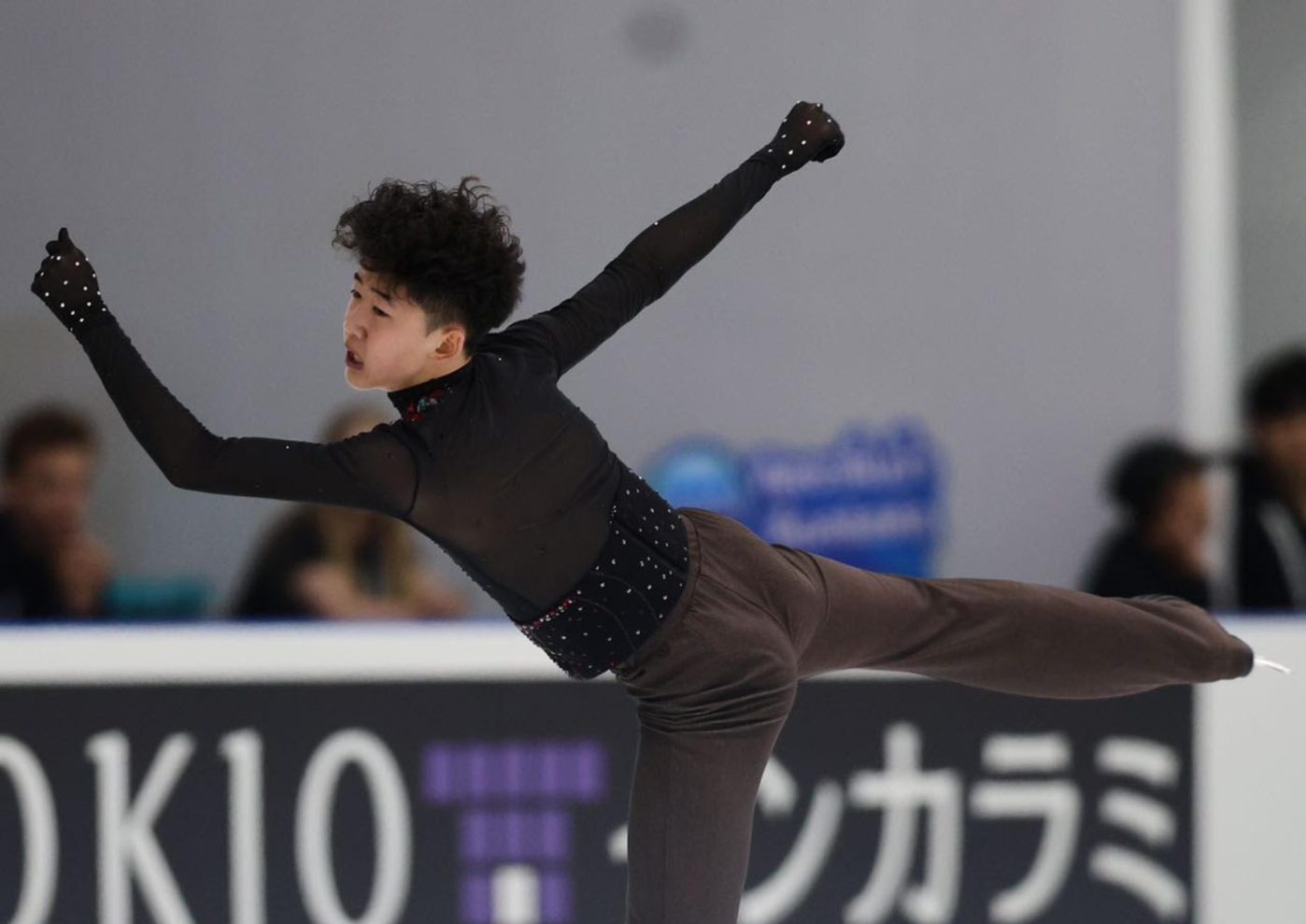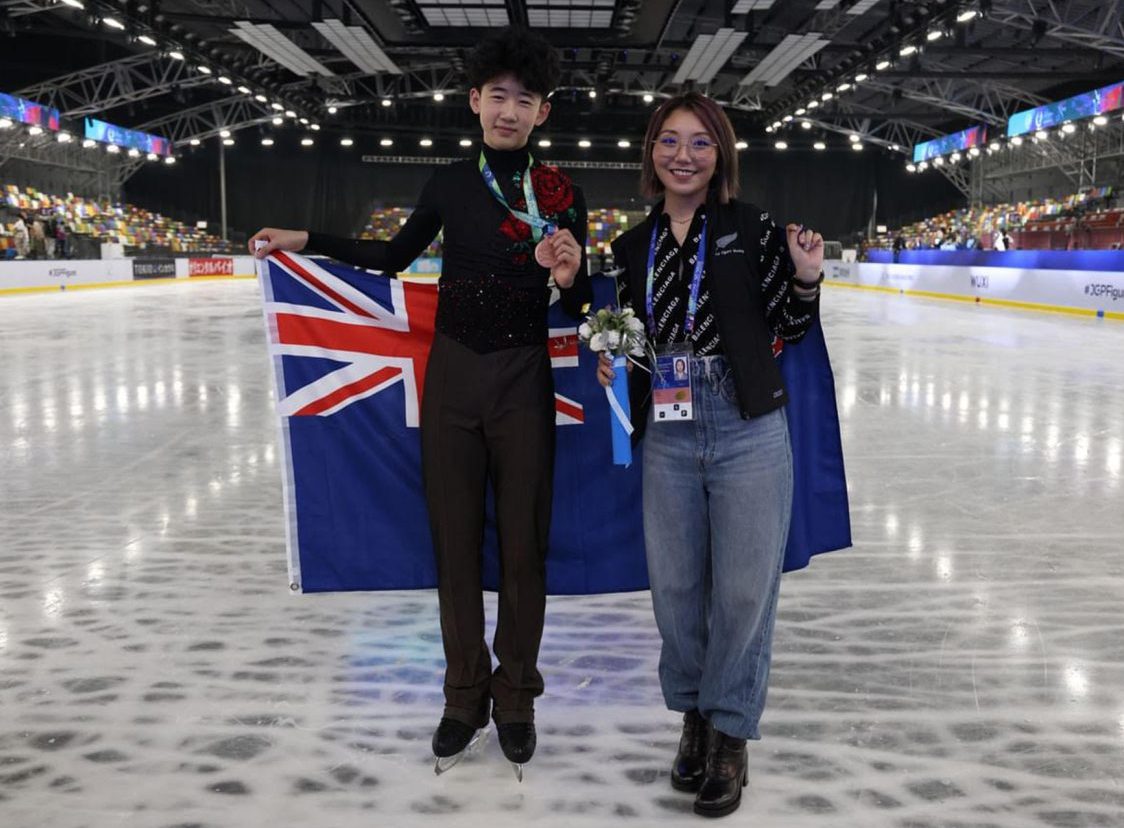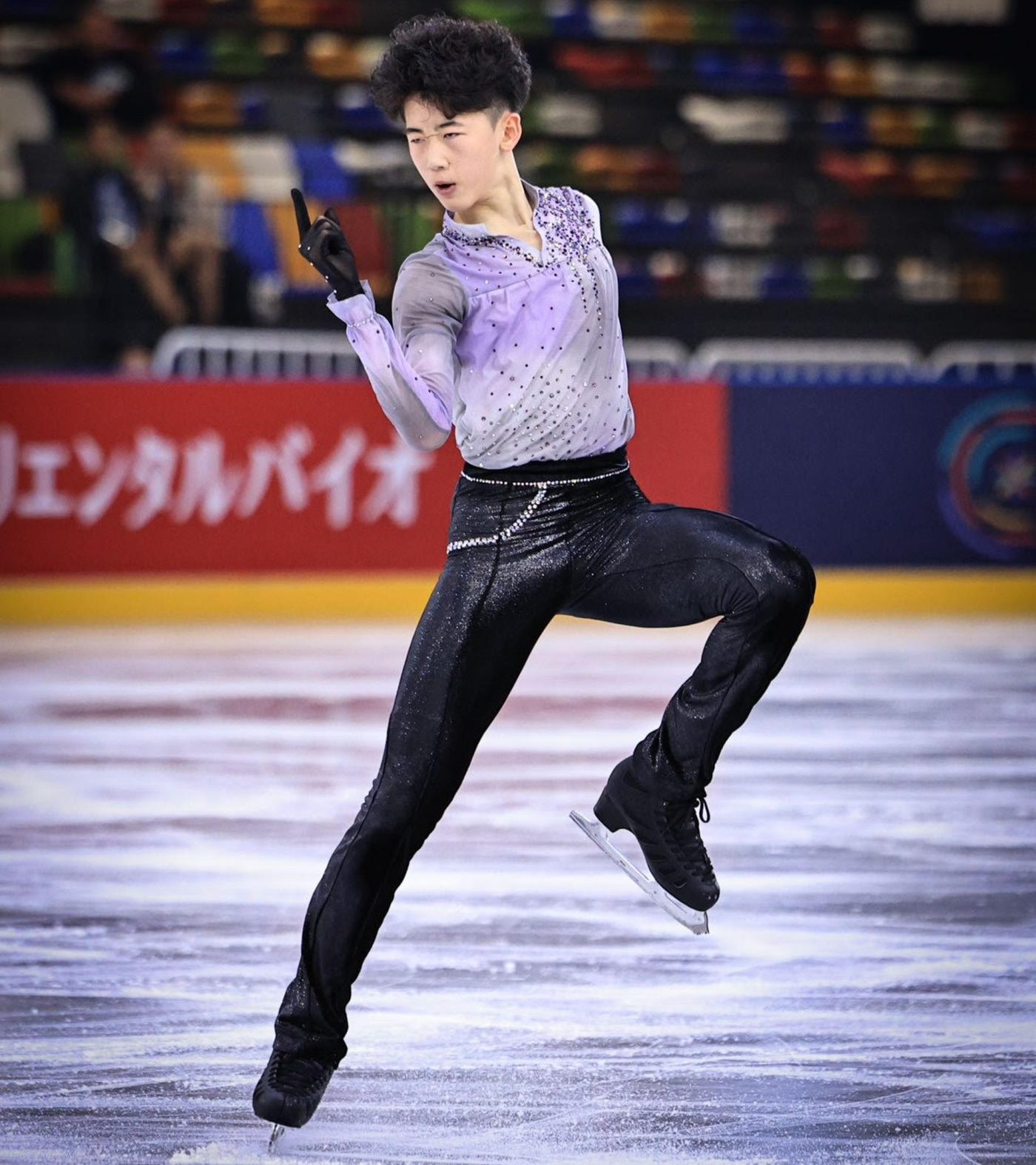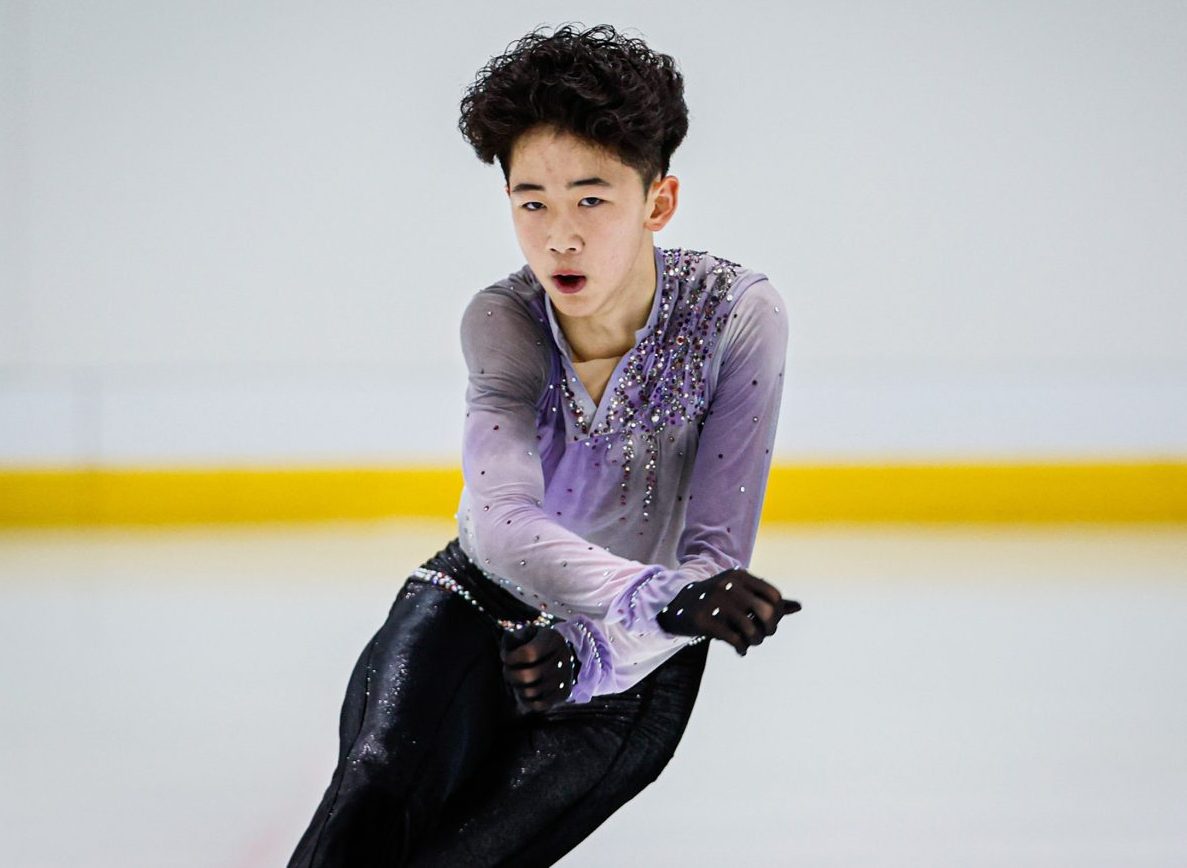
Dwayne Li, at age 16, is already New Zealand’s highest-achieving figure skater in international competitions.
He was the first New Zealand ice-skater to compete at the Winter Youth Olympic Games and significantly won a bronze medal at the global event in Gangwon, Korea, earlier this year.
Li is now heading to another pinnacle event for his sport after qualifying for the International Skating Union (ISU) Junior Grand Prix (JPG) end-of-season finale in Grenoble, France, on December 5-6.
It’s the world final of the grand prix events for junior skaters in 2024 and Li is one of only six competitors from across the globe to have made it into the highest-quality field.
The Macleans College Year 11 student qualified after achieving podium finishes at world grand prix events earlier this year – first at Bangkok and third at Wuxi, China, respectively.
His accomplishments this year are far and away higher results than any other New Zealander has recorded in international contests.
Li was born and raised in Beijing, China, before arriving in east Auckland in 2017.
He tells the Times when we meet with him and coach Bess Cao at Paradice Ice Rink Botany that he’s been ice-skating since he was four years old, because it’s a popular sport and pastime with a long history and culture in China and a climate especially in winter that’s conducive.

He says he was drawn to the sport and is excited by the aspects of “gliding over the ice and flying in the air”.
“I embarked on my figure skating journey in 2012, and since 2022, I’ve had the honour of representing New Zealand in various competitions,” says Li, the three-time national junior champion, 2022 to 2024.
“My passion for figure skating is driven by its unique blend of athleticism and artistic expression.”
Li says world-renowned skaters Yuzuru Hanyu and Ilia Malinin are “immense inspiration”.
“I’ve aimed to break barriers and create history for New Zealand in figure skating.
“As the youngest and first New Zealander to train at such an elite level, it has been immensely rewarding to make history by becoming the first New Zealander to win an ISU JGP event and qualify for the ISU JGP final.
“Winning a medal at the Winter Youth Olympic Games and breaking records is just the beginning,” says Li.
“I’m excited to see what the future holds as I strive for excellence in figure skating.
“As I continue this journey, my primary focus is on refining the quality of my skating and mastering the quad toe loop and lutz, with four rotations in the air.
“These skills are essential as I prepare for upcoming competitions.
“My immediate goal is to win the ISU JGP final in Grenoble. Looking further ahead, I aim to achieve victory at the 2025 World Junior Figure Skating Championships in Hungary.
“I’m dedicated to pushing my limits and proudly representing New Zealand on the international stage.”

Cao says the achievements of the coach and athlete combination are also more remarkable because of a number of factors, including New Zealand’s geographic isolation.
It costs a considerable amount of money for Li and her to travel overseas and compete at elite-level events, where they face competitors from countries with more of an established history in ice-figure-skating and are better resourced and supported.
Despite the difficulties – “it’s a tough road to get qualifications” – Cao says, and the many “hoops to jump through”, coach and athlete have an excellent understanding and belief in each other’s abilities and roles.
They’d also welcome any sponsorship ideas or offers.
They’ve done everything they can to record the best results they can at the upcoming events in France and Hungary.
With Li’s routines confirmed, he’s been training two-three times a day at Paradice Botany continually refining and improving the high-level difficult manoeuvres.
“It’s about connecting with the audiences and judges,” Cao says, who comes up with the choreography ideas and they both work on improving them.











